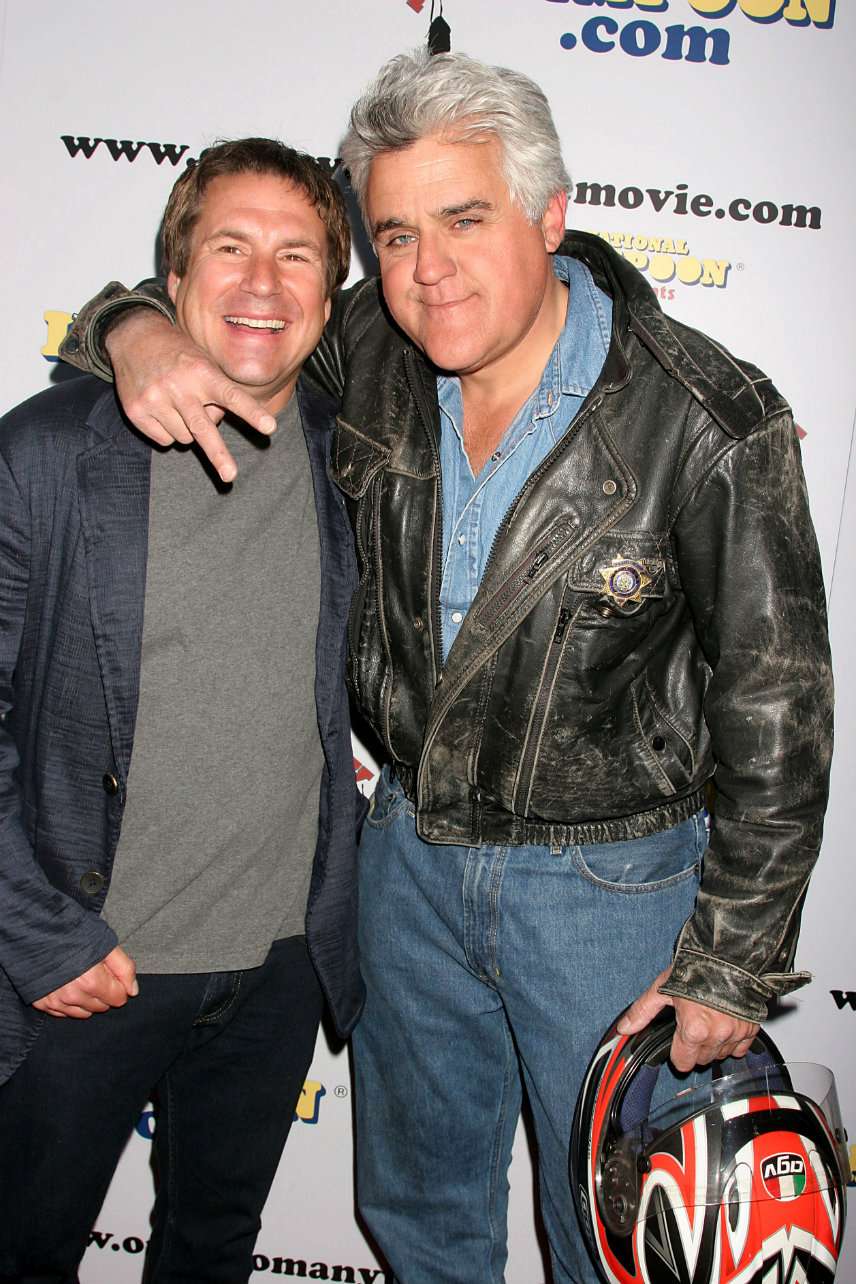This Stuttering Prankster Just Poked a Big Hole in Trump's Claim to Secure Communications: Reason Roundup
Plus: Groups launch a constitutional challenge to FOSTA and a leaked draft bill "provides Trump a license to raise U.S. tariffs at will."


"Stuttering John" proves president will call back any idiot. "Whether you're a republican or democrat you should be truly scared by how easily I got through to the President," says comedian, actor, and podcaster John Melendez. "This is not partisan. It's just plain scary."
Last Thursday, Melendez—a Howard Stern and Tonight Show alum also known as "Stuttering John"—got through to the president by pretending to be Sen. Bob Menendez (D–N.J.). "Sen. Menendez" called Trump as he was traveling on Air Force One, and Trump returned the call.
The comedian teased the podcast as the one "where I prank call the President," followed by:
Check it out, I have the President on as a guest… Seriously. https://t.co/5x3ex4lSzJ
— John Melendez (@stutteringjohnm) June 28, 2018
After a few more attempts to publicize his prank, with scant results—this was the day of the Capital Gazette shooting in Annapolis—Melendez tweeted that he found it "astounding that the news media's not picking up the fact that I totally duped the President & got in touch within less than 2 hours while he was on Air Force One." That one finally got some attention.
Melendez was quiet online for a few days, but on Saturday he claimed that Secret Service was at his door. "I guess my old friend Donald wants to continue this," Melendez tweeted. "Stay tuned."
Sectret service about to arrest me. Unbelievable! They should arrest Jared Kushner for putting the call through, shame on Donald Trump who has been a friend of mine for years.
— John Melendez (@stutteringjohnm) June 30, 2018
He claims he did not answer his door and the agents left (a time period during which Melendez managed to fire off a bad prison rape joke and several other tweets). On Sunday evening, he stated that he was headed to talk to the Secret Service at 10 a.m. Monday and that Michael Avenatti had agreed to be his lawyer.
I have just spoken to my new attorney @MichaelAvenatti who has agreed to represent me on this. Stay tuned.
— John Melendez (@stutteringjohnm) July 2, 2018
Whatever happens to Melendez, the incident has already set up a new line of criticism against Trump—led in large part by Melendez himself.
"I flew on Air Force One with President Obama … and their security systems are supposed to be pretty tight," he told CNN. "There's a whole protocol for making phone calls and receiving phone calls. I'm shocked this was able to get through, and it really does raise questions about what kind of security filter do we have on Air Force One, presumably the most secure set of communications in the world?"
if Stuttering John is able to prank Donald Trump and get a live call from Air Force One, what THE HELL IS VLADIMIR PUTIN able to do?! https://t.co/iM7BW8LjQi
— Randi Mayem Singer (@rmayemsinger) June 28, 2018
"It's a very chilling thing to contemplate," Rep. Gerry Connolly (D-Virginia) told Wolf Blitzer on CNN. A White House spokesperson told the news agency:
The President wants to be accessible to members and likes engaging them and wants them to have the opportunity to connect. The downside of that is sometimes the channels are open too widely and mistakes like this happen.
During the fake phone call with "Sen. Menendez," Trump congratulated him on his recent acquittal for corruption. "You went through a tough, tough situation, and I don't think a very fair situation," said Trump. The pair discussed border security and Supreme Court picks as well.
Meanwhile, Melendez's new lawyer had this to say about the situation:
You would think that the last thing Mr. Trump would want to do right now is go after some comedian that punked him. That would permit inquiry by John into the buffoonery that allowed it to happen. Admit you are an amateur and focus on reuniting the children you separated. #Basta
— Michael Avenatti (@MichaelAvenatti) June 30, 2018
Instead of wasting time on this, Mr. Trump should focus on the numerous other things that are of a greater priority. Let's start with reuniting over 2,000 children with their parents immediately. #Basta #FightClub https://t.co/BGcDE4ChOk
— Michael Avenatti (@MichaelAvenatti) July 2, 2018
First FOSTA challenge in the works. The Electronic Frontier Foundation (EFF) is suing to invalidate the Allow States and Victims to Fight Online Sex Trafficking Act of 2017 ("FOSTA"), the recently-enacted law making prostitution ads a federal crime.
"The law was written so poorly that it actually criminalizes a substantial amount of protected speech and, according to experts, actually hinders efforts to prosecute sex traffickers and aid victims," says the organization, which is joining forces with the Internet Archive, "two human rights organizations, an individual advocate for sex workers, [and] a certified non-sexual massage therapist," EFF notes.
Although the law was passed by Congress for the worthy purpose of fighting sex trafficking, its broad language makes criminals of those who advocate for and provide resources to adult, consensual sex workers and actually hinders efforts to prosecute sex traffickers and aid victims. EFF strongly opposed FOSTA throughout the legislative process. During the months-long Congressional debate on the law we expressed our concern that the law violated free speech rights and would do heavy damage to online freedoms. The law that was ultimately passed by Congress and signed into law by President Trump was actually the most egregiously bad of those Congress had been considering.
Read more from EFF here—and expect a lot more on this suit here at Reason in the days and weeks to come.
See also: What is "Switter," and why it matters.
FREE MARKETS
America to abandon WTO rules? leaked draft of a bill "ordered by the president himself" was obtained by Axios and "would declare America's abandonment of fundamental World Trade Organization rules." More from Axios:
The draft legislation is stunning. The bill essentially provides Trump a license to raise U.S. tariffs at will, without congressional consent and international rules be damned.
[…] The bill, titled the "United States Fair and Reciprocal Tariff Act," would give Trump unilateral power to ignore the two most basic principles of the WTO and negotiate one-on-one with any country:
- The "Most Favored Nation" (MFN) principle that countries can't set different tariff rates for different countries outside of free trade agreements;
- "Bound tariff rates" — the tariff ceilings that each WTO country has already agreed to in previous negotiations.
"It would be the equivalent of walking away from the WTO and our commitments there without us actually notifying our withdrawal," said a source familiar with the bill
Read more here.
QUICK HITS
- Trump's personal lawyer Michael Cohen says he is not a "villain of this story" and won't "be a punching bag" as part of any "defense strategy." The comments come as part of an interview with George Stephanopoulos that aired today on Good Morning America.
- Rep. Barbara Comstock (R-Va.) is pushing legislation to give all federal employees 12 weeks of paid leave upon the birth or adoption of children.
- Iowa's Supreme Court has struck down a law requiring a 72-hour waiting period for women seeking abortions.
- The New York Times is worried about conservatives "weaponizing free speech."
- Doctors will be prevented from prescribing opioid painkillers as they see fit under new laws taking effect today in Florida, Michigan, and Tennessee.
- Weekend immigration protests in Portland were heated.
- Copyright fights come to unicorn farts.
- Sex without affirmative consent can now be prosecuted as rape in Sweden.


Show Comments (190)